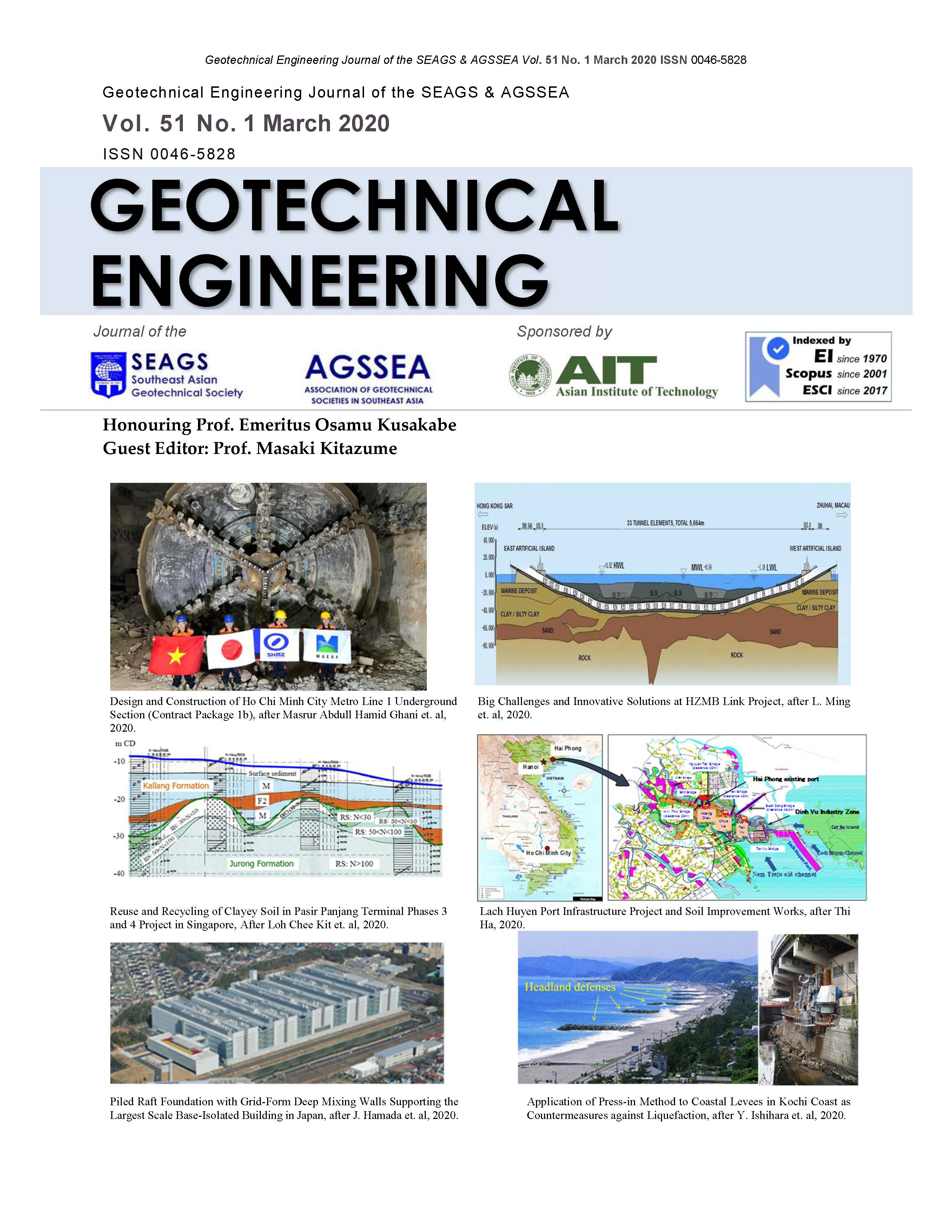A Comparison of EPB and Slurry TBMs Operating in Mixed Ground Conditions Resulting from Tropical Weathering of Rock
Main Article Content
Abstract
Deep, but uneven, weathering of rock is common in tropical and sub-tropical areas. Infrastructure development in many Asian cities has required tunnelling through weathered rock profiles. The ground conditions for the tunnelling typically include saprolite, rock, and mixed faces of soil and rock. Where the rock is strong, and mixed ground is anticipated to be encountered over a significant proportion of the drive, slurry TBMs are typically specified in Singapore, based on local experience. Case studies of slurry and EPB tunnelling in mixed ground conditions, from Hong Kong, are presented, and compared, to illustrate the issues involved. For the EPB drive, there were very large increases in the Penetration Index and Specific Energy when working in pressurised EPB mode in ground conditions comprising >50% strong or stronger rock. In these ground conditions the rate of disc cutter replacement was significantly higher than when tunnelling in open mode in a full face of rock, on the same drive. Average progress rates fell to less than 3m per week in the most extreme conditions of 85% to 99% rock, with most of the time being spent on interventions, including a significant proportion of time required to cool the excavation chamber. It is postulated that these observations are related to the clogging of the cut chips of rock in the tool gap, ahead of the cutterhead, when the cut rock becomes the majority of the spoil. A slurry shield in comparable conditions in Hong Kong did not experience the spikes in Penetration Index, Specific Energy, or cutter wear, in mixed ground conditions, that were experienced during the EPB drive.
Article Details

This work is licensed under a Creative Commons Attribution-NonCommercial-NoDerivatives 4.0 International License.
Copyright © 2019 Association of Geotechnical Societies in Southeast Asia (AGSSEA) - Southeast Asian Geotechnical Society (SEAGS).


